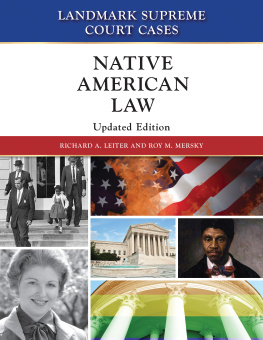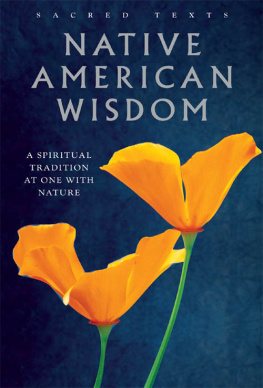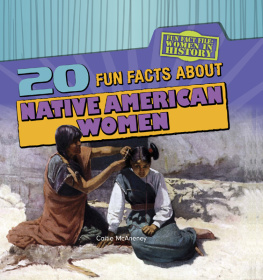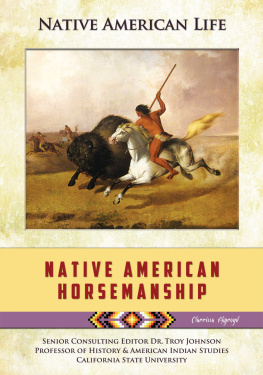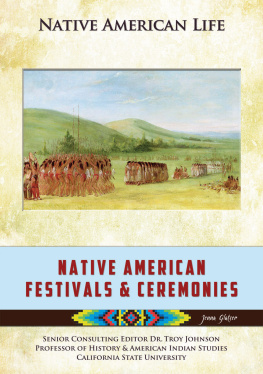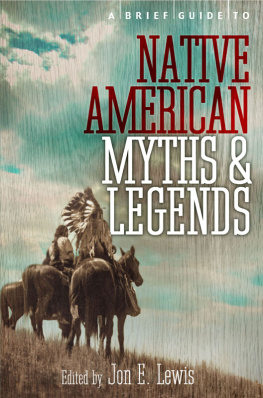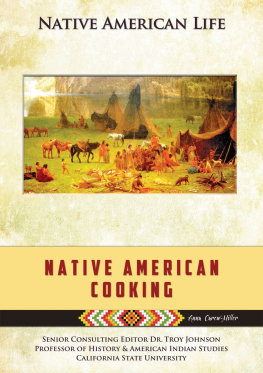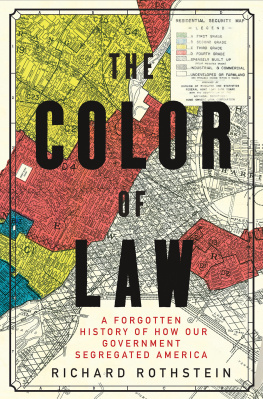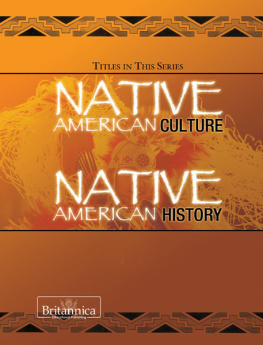Native American Law, Updated Edition
Copyright 2021 by Richard A. Leiter and Roy M. Mersky
All rights reserved. No part of this publication may be reproduced or utilized in any form or by any means, electronic or mechanical, including photocopying, recording, or by any information storage or retrieval systems, without permission in writing from the publisher. For more information, contact:
Facts On File
An imprint of Infobase
132 West 31st Street
New York NY 10001
ISBN 978-1-64693-690-8
You can find Facts On File on the World Wide Web
at http://www.infobase.com
Preface
This new edition includes new cases from the 2011-2014 terms of the United States Supreme Court, which ended in the summer of 2015, the last full term during which the court was fully staffed, before Justice Antonin Scalia died in February 2016.
In those four terms of the court, forty-six cases were selected as landmark, meaning that they are cases that have featured prominently in either scholarship, the press or popular media. Of all the cases, there were few standouts, such as the Obergefell v. Hodges, the case that found a constitutional protection for all same sex couples that wish to get married in any state, had a profound effect on every state and, arguably, American society as a whole. Only time will tell if other cases on the list, such as Burwell v. Hobby Lobby, will continue to be seen as having as large an impact.
In addition to the cases updating these four terms, we also added coverage of landmark cases in the field of Environmental and Water Law. Since the majority of landmark legislation regarding clean water, pollution and other environmental issues was passed in the early 1970s, many of the landmark cases are relatively recent.
The following people contributed draft summaries of the seventy new cases added to this edition. Annie Avery is a law student at University of Nevada Las Vegas, her husband, Matthew is a vicarious law student at the same institution. Everyone else listed are students at the University of Nebraska College of Law.
Annie Avery
Matthew Avery
Jessica Fauss
Kara Fischbach
Kayla Hathcote
Jared Koch
Amy Lierz
I thank each of these students for their hard (and excellent) work. I also wish to acknowledge the patience of my editor at Infobase Learning, Owen Lancer.
Entry Author: Leiter, Richard A.
Entries
Native American law and the Supreme Court
During the nation's early expansion across the North American continent, our ancestors encountered sovereign Native peoples who were organized by tribe according to various ethnic groups. Because of the relative lack of sophistication of their governmental and social systems and the development and use of "modern" technologies, they were seen by the early Americans as "savages" and were thought to be generally uncivilized.
As a result, when European Americans moved into a territory and settled, they were able to do so with impunity. Occasionally, when the Native peoples resisted the Europeans' advances, they were quickly, if not without resistance, forced out of their lands. The early federal government recognized these peoples as sovereign nations and attempted to sign treaties and make peace with them. But as the society and economy developed, a concept of Manifest Destiny also developed, leading to a sense that the nation's growth was inevitable and that we were entitled to settle wherever we desired.
Eventually, through a series of wars and political negotiations, the United States negotiated with the Native American nations that they should be moved into "Indian Territories," over which their extant tribal governments would exert political authority. Over the years, there has been extensive litigation regarding the nature and extent of the tribes' sovereignty and authority to handle their own governmental matters and the authority of local, state, and the federal governments to regulate affairs within Native territories. Indian reservations have resisted the authority of governments to regulate and tax activities within their boundaries on the grounds that they are sovereign nations; they have, in recent years, been successful in asserting that authority. Native tribes have won important cases in which they have asserted their independence from the federal and state governments on a number of important issues. For example, Native tribes have won various tax exemptions and the right to establish gambling casinos in contradiction to state law, arguing that state laws that restrict or ban gambling cannot apply to them as sovereign nations.
In the end, the concept of sovereignty of the Indian nations is one that has not been completely settled. As those nations recover from the brutal ramifications of the policy of Manifest Destiny, they have struggled to find their way in the new nation that established itself on their native continent and are coming into their own as independent Native peoples free to determine their own destinies as sovereign nations. The future, it appears, holds a Manifest Destiny for them as well.
U.S. ConstitutionArticle I
Section 8. The Congress shall have power to regulate commerce with foreign nations, and among the several states, and with the Indian tribes.
U.S. ConstitutionArticle III
Section 1. The judicial power of the United States shall be vested in one Supreme Court and in such inferior courts as the Congress may, from time to time, ordain and establish.
Section 2. The judicial power shall extend to all cases, in law and equity, arising under this Constitution, the laws of the United States, and treaties made, or which shall be made, under their authority; to all cases affecting ambassadors, other public ministers, and consuls; to all cases of admiralty and maritime jurisdiction; to controversies to which the United States shall be a party; to controversies between two or more states; between a state and citizens of another state; between citizens of different states; between citizens of the same state claiming lands under grants of different states, and between a state, or the citizens thereof, and foreign states, citizens, or subjects.
Entry Author: Leiter, Richard A., and Roy M. Mersky.
Johnson v. M'Intosh
Also known as: 21 U.S. 543
Key Issue
Do Native Americans have the power to transfer valid title to tribal lands to other individuals?
History of the Case
Thomas Johnson purchased land in what would become the states of Illinois and Indiana from the Piankeshaw tribe in 1773 and 1775. In 1818, William M'Intosh received a grant from the U.S. government to the same land. Thomas Johnson's son and grandson inherited the land Johnson had purchased in the 1770s and leased it to the plaintiffs. The plaintiffs brought suit to eject William M'Intosh from the land.
Summary of Arguments
The plaintiffs contended that Thomas Johnson legally purchased the land in 1773 and 1775. They claimed that their title to the land ran directly from the Piankeshaw Indians, who owned the property prior to the purchase by Thomas Johnson. Accordingly, their title was superior to M'Intosh's title, and M'Intosh should be ejected from the land.
M'Intosh argued that the land belonged to him through the land grant from the U.S. government. His title was superior to Johnson's title as the Indians could not have conveyed a superior title to the land as they possessed no title that could be recognized by a U.S. court. The Court summarized M'Intosh's argument as "Discovery is the foundation of title, in European nations, and this overlooks all proprietary rights in the natives."

